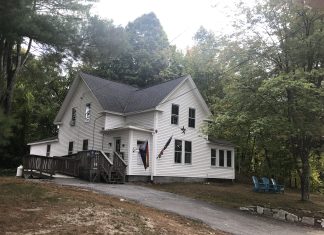“The visit was a success!” Associate Vice President of Academic Effectiveness Nelly Lejter said of a recent visit from the New England Association of School and Colleges (NEASC). “It was a real team effort, and it showed.”
In early November, the Commission on Institutions of Higher Education, the component of NEASC involved with accreditation for every college and university in this region, sent executives and senior administrators from other colleges in New England to NEC’s campus for a “Focused Visit.”
Focused Visits can occur at any time in the interim period, which NEC is currently in; the institution’s last major re-accreditation process, the Comprehensive Review, was in 2014 and the 5-year review won’t take place until 2019. In between these reviews, NEASC, which is an agency that has worked to define and uphold high standards in the area of education from pre-K to the doctorate level, is in constant contact with its universities. So this visit was no surprise.
“NEASC told NEC that they would like to learn more about what we are doing on a number of areas,” said Lejter.
These areas included establishing a more systematic method to the application of institutional data, evaluating the Ed.D. Program, making certain of the quality of academic programs and the efficiency of institutional governance considering recent early retirements of faculty, reaching goals set for enrollment/retention/graduation, and continuing to reinforce financial stability.
Lejter’s role was to assist different groups and departments at NEC in producing the information and inputs required to compile a great report and prepare for an excellent visit.
“Under the umbrella of Academic Affairs, I worked under the guidance of our Interim Vice President of Academic Affairs John O’Connor in endless meetings, and carried out specific tasks, including putting together and doing the final write-up of the report,” Lejter said.
This project provided Lejter the opportunity to communicate with many individuals across the campus and learn about their role at the college and their long-term goals. She was able to see how their efforts connect with NEC’s Strategic Plan and overall goals and mission. Lejter felt the resulting report along with the experience of the visit provided evidence that NEC’s community works well together and produces great results.
“Maintaining accreditation with NEASC’s Commission on Higher Education is key,” Lejter said, “in how it indicates to the public as well as to other agencies that the programs offered provide a high quality education.”
Like NEC’s own President and Vice President of Finance who have completed peer-reviews with NEASC at other universities, the visiting members came from institutions like NEC.
“They learn from us as much as we learn from them,” said Lejter.
Soon, the team that visited will write a report, which NEC will check for factual errors before it is sent to NEASC. Then the college will eventually receive a letter of feedback.
Although the five-year review is a few years away and the ten-year won’t be until 2024, Lejter said, “It is really a process that takes place continuously, which is a great thing, because it helps keep us ‘on our toes’ in terms of quality and continuous improvement.”



















